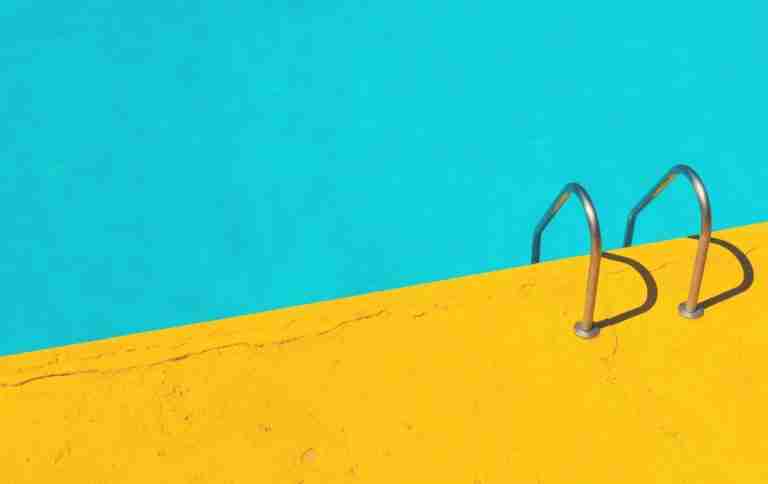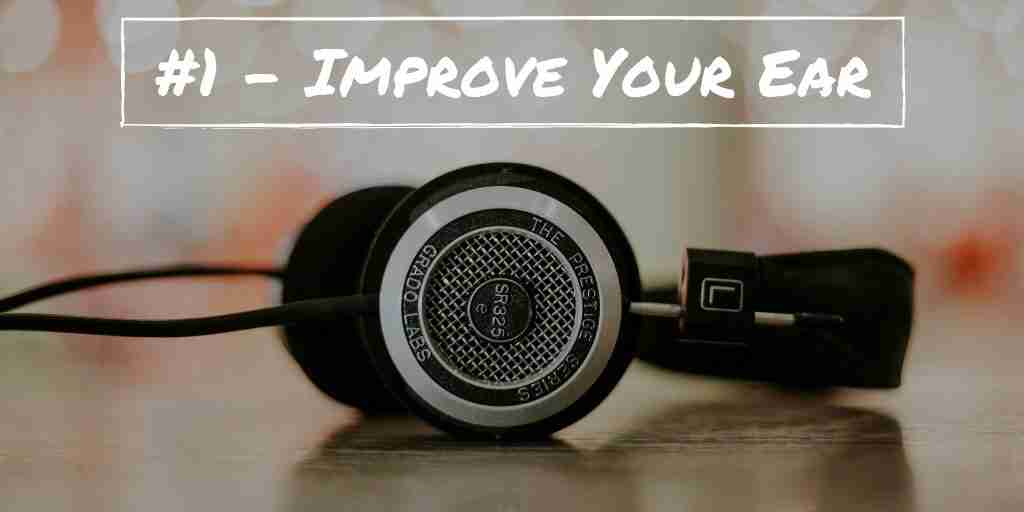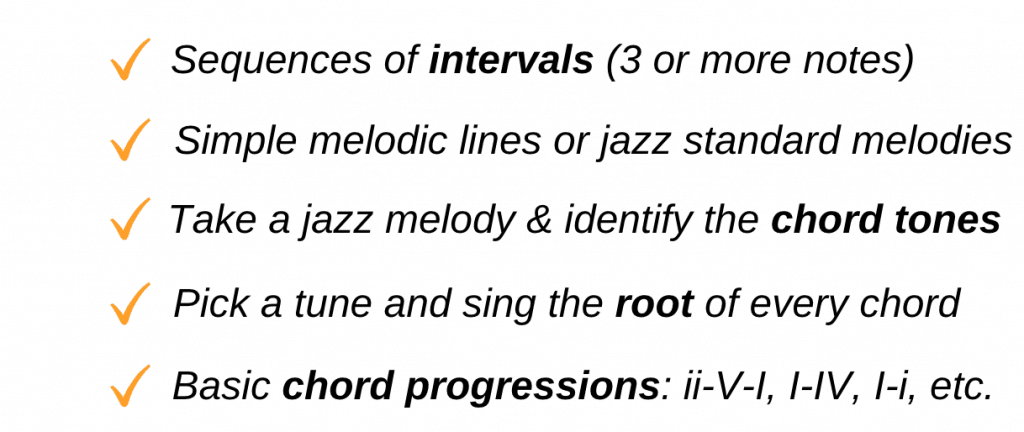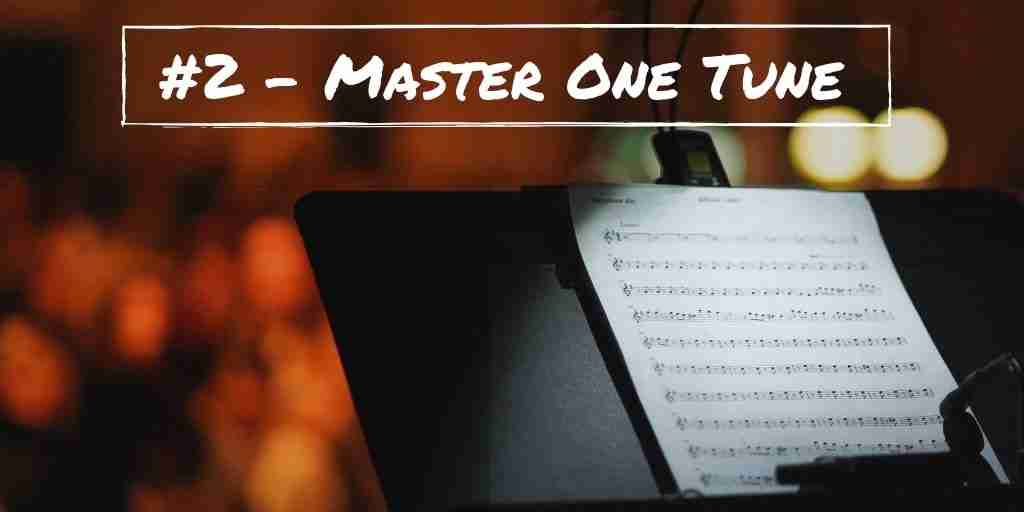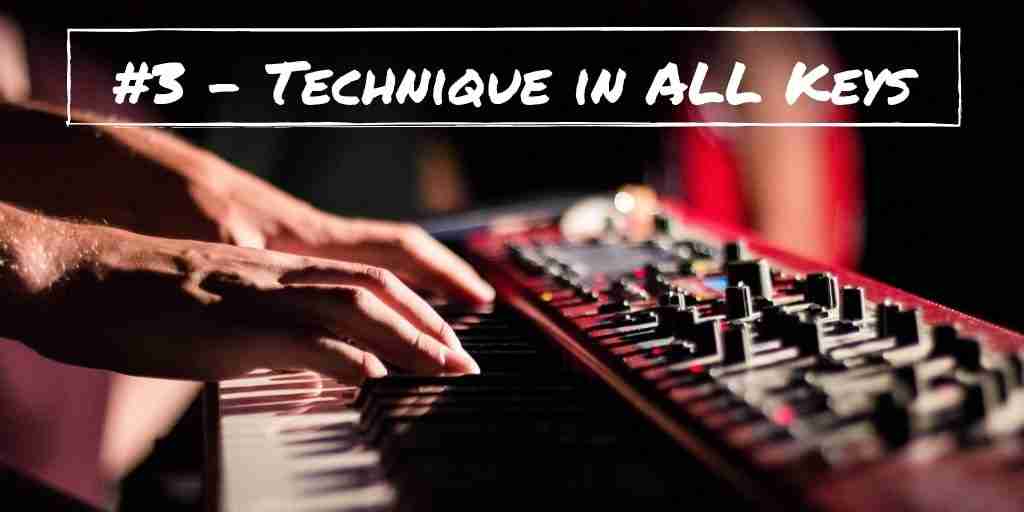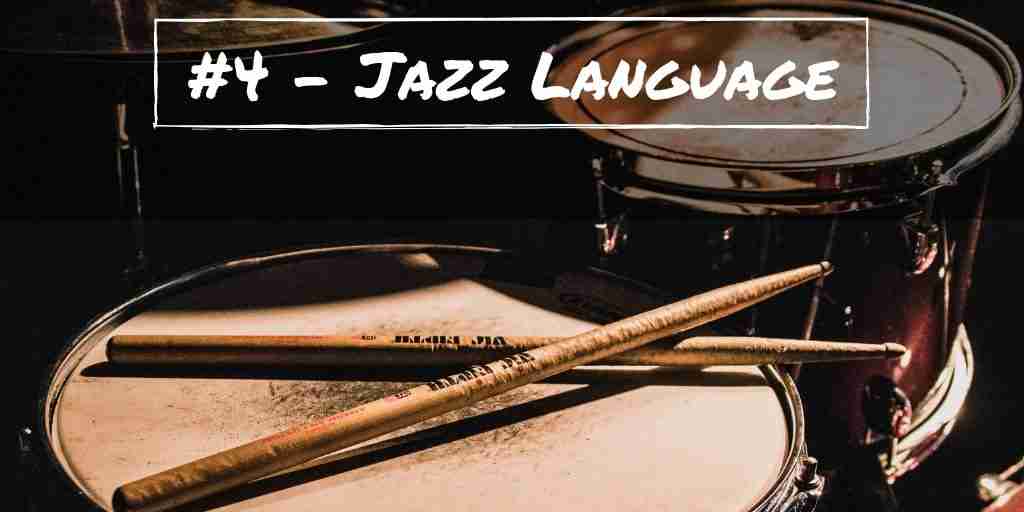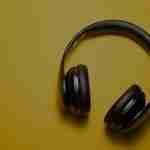Ahh the summer…a time to take a break from the daily grind and a moment to take stock of your progress. A few months to relax, reset, and refocus on the stuff you want to accomplish as a musician.
As an improviser this time can be pivotal in your musical development…if you focus on the right stuff.
However, when most players think about heading into the practice room over the summer, they inevitably get lured into big projects – tackling long lists of jazz standards, trying to transcribe a bunch of solos, or getting lost in a new method full of advanced scales and patterns.
But here’s the thing…
If your ultimate goal is to improve the way you improvise, the usual stuff is not going to do the trick. You see these projects are beating around the bush, treating the external symptoms rather than the root of the problem.
Sure, you might have a few more tunes under your belt and some new licks to play, but at the end of the day your ability to hear a chord progression or improvise a melodic phrase won’t drastically change.
And this is the stuff that matters when it’s your turn to take a solo.
Rather than the typical approach of tackling a huge project, you’ll see much more benefit in taking one specific aspect of your musicianship and mastering it. THIS is what will make a noticeable difference in your solos.
The summer is the perfect time to transform your playing. To zero in on the essential skills that get passed over during the rest of the year and to focus intently on the holes in your musicianship that are hindering your progress.
You’re not going to improve unless you devote time to mastering fundamental skills and strengthening the building blocks of your musicianship. Remember, the term fundamentals doesn’t mean “easy” or for “beginners.” It means important, essential, and necessary for becoming a proficient musician.
Today we’re going to show you 4 areas that you should be practicing on your summer vacation if you actually want to play better solos.
You gotta be honest…
Before we jump into the things you need to practice, it’s important to remember one thing – if you want to transform from the musician you are today to the one that you aspire to be, you need to start being completely honest.
Honest about your goals, your current skill level, and where you need to improve…and this can be hard to do.
It’s easy to stay in your comfort zone, to go with the flow and gloss over the fundamentals. To say “Sure, I know some tunes” or “I can think in all keys” or “I know the Rhythm Changes.”
…but when push comes to shove and you find yourself stepping up to take a solo, how well do you really KNOW this stuff??
There’s a difference between an intellectual understanding of something and actually being able to hear it and perform it on your instrument – this is what separates the amateurs from the pros.
The biggest thing holding back aspiring musicians isn’t a lack of practice time or a desire to improve, it’s not being honest about what you need to work on and not devoting serious practice time to these things.
Here’s a simple process to fix this:
1) Start by articulating your goals (technical, musical, professional) and write them down.
2) Next take an honest look at your current skill level (strengths and weaknesses). Right now do you have the technical or musical requirements to achieve your goals? What can’t you do? Where do you need to improve??
3) Break down the skills you need in order to achieve these goals and isolate the specific things holding you back. Make a road map of how to overcome these barriers and gain the skills you need.
These steps are essential if you want to make meaningful improvement in any skill! If you’re still unsure about where you stand, take a few minutes and do the Jazz Improvisation Audit.
For the majority of improvisers, the areas that will make the most difference in their ability to improvise come down to four essential skills…
Summer Project 1: Ear training
Ear training is an essential skill for musicians of every style, but especially for players serious about improvising.
I know…you’ve heard this before. But the truth is, most musicians are woefully unprepared when it comes to actually using their ears.
There are two reasons for this: 1) “Ear training” is often seen as simply identifying intervals or a class to pass and forget about. 2) Music education is centered around music theory – most students can define theory terms on paper, but in a playing situation without any music they are lost.
If you’re someone who is frustrated and struggling to piece together chords and theory when it comes to improvisation, improving your ears is a necessary step – one that will pay dividends in every aspect of your musicianship.
Why ear training is important:
- It’s essential for connecting to music on a deeper level
- Learning melodies and tunes by ear
- Figuring out and hearing individual chords & progressions
- Transcribing melodic lines and solos
- Improvising by ear rather than memorized theory
The way that you interact with music is through sound…if you’re still relying on lead sheets, fake books, and memorized chords to improvise you’ll always be two steps behind, no matter how much you practice.
Basic ear training:
This is the first step for those who’ve never devoted some serious time working on ear training. It’s more than a class or a few exercises, you need to start training your ears like a jazz musician.
(*To be honest, this was me in college. Even after taking ear training courses and memorizing intervals, I still hadn’t put in the time to truly improve my ear.)
Don’t skip over the basics or overestimate your abilities, this can hold you back in the long run…
Here are the key areas to focus on: (ingrain and sing each)
This stuff is the foundation of music and you need to be able to hear it to successfully improvise and learn tunes!
*Want a guided program with listening tracks to excel even faster? Check out the Ear Training Method here!
The goal is not to pass a test or to name an interval, it’s to ingrain the sound of these devices so you can instantly recognize them by ear, whether you’re listening, practicing, or performing.
Think about it: all melodies are essentially a collection of intervals and every chord progression that you encounter contains individual chords. If you can instantly hear these pieces in real-time, you’re ready for any musical situation.
Next level ear training:
If you’ve already spent some time working on the basics of ear training, it’s time to go even deeper – you’re just getting started!
Identify, ingrain and sing:
These are the harmonic building blocks of the jazz standard repertoire, if you ingrain the sound of these common progressions, you’ll be much more successful at learning tunes and eventually creating solos over them.
Need more?
Feel like your ears are proficient and want to put your skills to the test?? Pick a jazz standard that you don’t know. Listen to it and see if you can figure out the chord progression by ear – without any reference to your instrument or a piano.
…using only your ears.
Try it with the standard Without a Song, played here by Sonny Rollins…
Listen multiple times and to multiple versions. What is the form? Can you identify common progressions (ii-V-I, VI chord) Can you hear the chord tones the melody is using? Can you hear the root movement?, etc…
This is the real reason you are training your ears – to hear stuff like this in real time, to create music over this. Had trouble identifying those chord qualities, progressions, and melodic lines?? It’s time to go back and build your skills.
We all want to be the player that can play by ear, that can listen to a tune and know the chords and melody, and that can walk into any musical situation and sound great. The way you get there starts with some serious ear training.
Summer Project 2: Tunes
When it comes to learning tunes, many players get lost in the mad rush to learn as many tunes as they can.
The typical mentality of many jazz musicians is that memorizing a few tunes is okay, but more is better! That after learning 100 tunes something will suddenly click, that you will see the light and start playing great solos over every tune.
…the problem is this never happens. A bunch of time and effort is spent memorizing information without ever actually learning to play musically over these tunes, to improvise.
Simply staring at a lead sheet or memorizing a ton of chord progressions and melodies doesn’t mean that you’ll be able to play better solos over these tunes!
What gets lost in this obsession with how many tunes you know is that the majority of jazz standards use the same harmonic relationships over and over again.
If you focus instead on these building blocks, can identify them by ear and have tools and techniques for navigating them, you’ll be able to play over any tune. And this process starts with mastering one tune.
Why mastering one tune is important:
- Anyone can memorize a melody and chord progression, however not everyone can improvise melodic lines over these tunes
- By using your ears to not just learn the information, but understanding how it’s put together, you’ll gain insight into the bigger musical picture
- The chords and progressions you learn to play over in one tune can be applied to every other tune
- Understanding and hearing how a tune is put together is the key to improvising melodic solos
Tunes to start with:
It doesn’t take a complex tune or long list to deepen your understanding of the jazz repertoire. Find a recording, listen, and learn the melody and chords by ear. Some essential tunes to start with are:
The key is not just memorizing the melody and chords, but analyzing the melody and chord progression, hearing it, and understanding how it’s put together.
Look at the big picture, what are the common chord relationships at work?
To see this process in action, check out how we deconstructed the jazz standard It Could Happen to You in this lesson. Starting with the melody, the bass line, the chords, and finally the important chord relationships.
Learning tunes in this way will allow you to easily apply the language you have, learn it in other keys, and develop melodic techniques and longer musical phrases.
Next Steps:
Some standards that pose a few more hurdles are…
- Rhythm Changes
- Confirmation
- Stella by Starlight
- Just Friends
…or check out these 9 tunes.
Once you shift your approach to learning tunes, to immersion and mastery instead of simple memorization, the tune doesn’t really matter. You are building skills, instead of simply processing information.
In each standard, find the thing that makes the chord progression unique:
- Does the tunes start on the I chord or another chord?
- Where does the bridge go?
- Is the form standard or atypical?
- What substitutions or alternate progressions are used – Dominant II chord, Backdoor ii-V, tritone subs?
This is the key to understanding each tune on a deeper level.
Beyond??
Want to challenge your self even more? Check out: Giant Steps, Stablemates, Moment’s Notice, Inner Urge, Take Five…
There are hundreds of tunes out there. The tune doesn’t matter as much as your understanding of the basic elements at work, your ears and ability to hear these pieces, and your skill at creating melodic lines.
Summer Project 3: Develop Technique in All Keys
One thing that all musicians need to do is develop technique and fundamental structures in all keys.
It’s really pretty simple, if you don’t have technique in every key it’s going to catch up with you when you try to improvise. Many musicians fall flat when they try to play over certain tunes and progressions because they simply can’t play in certain keys.
The good news is that just takes some good old fashioned practice time – if you do the work, you’ll see results.
Think of this like the homework that will allow you to easily learn tunes and melodies in all keys, the technical foundation that will allow you to transcribe solos in any key and improvise in any setting.
Your goal is to remove any mental or technical barriers that stand in the way of you being creative. Becoming proficient in all keys is one skill that all players need.
Check out our Guide to Learning Jazz in All Keys here!
Why learning all keys is important:
- You’ll encounter every key in learning the jazz repertoire, from major and minor to ii-V-I’s. Treat every key with equal weight.
- Creativity should be the goal when you are improvising. You don’t want to be stuck thinking about the key signature or the fingering on your instrument.
- Facility in all keys won’t just aid your improvisation, it’ll help you in learning tunes, transcribing solos, and reading music.
The good news is that you don’t have to have your instrument with you to start practicing in every key, you can simply use visualization.
The Basics in all keys:
Start with the fundamental musical structures and ingrain them in all keys.
- Scales and diatonic arpeggios
- Practice both Major keys & minor keys
- Scale exercises and melodic patterns
- Take simple melodies and work them out in all keys
- Or take one line as we did in this lesson and master it in all keys
Next Steps:
Once you have a basic foundation in every key, focus on common chord progressions.
- Start by visualizing common progression in each major key (ii-V-I) (I-IV-V-I)
- Get to the point of being able to instantly recall these in any key
- Do the same for common progressions in minor keys
- Play or arpeggiate these progressions on your instrument
- Take the melody to common jazz standards and practice in all keys
Need More?
After you are comfortable visualizing and playing common progressions in all keys, it’s time to start working on playing jazz standard progressions in every key.
- Take the Blues progression through all keys, visualizing first and then play the roots or arpeggios on your instrument
- Do the same with a standard like How High the Moon or Cherokee
- Practice playing the melodies to these tunes in all keys
- Take a transcribed phrase and learn it in every key
The goal here is to make every key feel the same, one is as simple or easy as the next.
Summer Project #4: Acquiring Jazz Language
One of the most important steps in learning how to improvise and creating your own melodic phrases is learning the jazz language from the lineage of great improvisers that came before you.
Studying how these masters approached individual chords, common chord progressions, and the standard repertoire. Imitating how they used chord tones, shapes, rhythms, and sound.
The most effective way to transition from a music theory approach to improvisation and start making melodic statements, is by learning the jazz language.
The summer is the perfect time to dive into a solo of your choice.
Why it’s important:
- Language is the foundation of creating your own musical statements, thinking about phrases, musical ideas instead of scales and chords
- Gets you past the theory stage to a more melodic approach, includes style, sound, time, articulation, shape, and the harmonic and melodic elements of music
- A model for navigating the basic chords and common progressions of the jazz repertoire
- The spring board for making your own musical language
The goal is not only to steal a lick, but to gain harmonic and melodic tools for navigating specific musical situations.
Start simple:
- Take one musical phrase, one line, even a few notes – there are valuable techniques in everything!
- Analyze it, what is the harmonic context, melodic content, chord tones used?
- Learn it in all keys
- Apply this language to your own solos
- Create variations of this line (rhythmic, harmonic, melodic)
For an example of the process, check out this lesson where we take a Freddie Hubbard line and break it down piece by piece.
The key with learning language is not to rush through the process or to take on too much at once. It’s to isolate one phrase, learn it by ear, figure it out on your instrument, and analyze why it works.
You can do this with any player, any solo, and any tune. The beauty of the process is that it’s completely up to you 😉
Aim to have multiple pieces of language for each of the basic chords and progressions in the jazz repertoire. This is your starting point for creating your own sound!
*Want more? Check out Melodic Power, our in-depth course on mastering the jazz language!
Time to get to work!
The truth is, you can memorize a big list of tune at any time of year. The summer should be for building and strengthening your musical foundation.
The four projects above are big and will take time…but that’s kinda the point. It’s why you should focus on them now!
Pick one of these areas to focus on for the next month or two and your musical abilities will noticeably improve. If you put in the practice time now, you’ll gain musical skills that will translate to every aspect of your musicianship…
- With fundamental ear training skills, your ability to learn tunes, transcribe solos, and improvise will improve
- With technique in all keys, you can focus on musical ideas in your solos rather than trying to figure out which button to push
- With a deep understanding of key jazz standards, you can spend less time learning individual tunes and start focusing on what you want to play.
- And with language and musical tools for the fundamental progressions in the jazz repertoire, you’ll be able to solo over any tune.
This is the stuff that will make your solos sound better!
